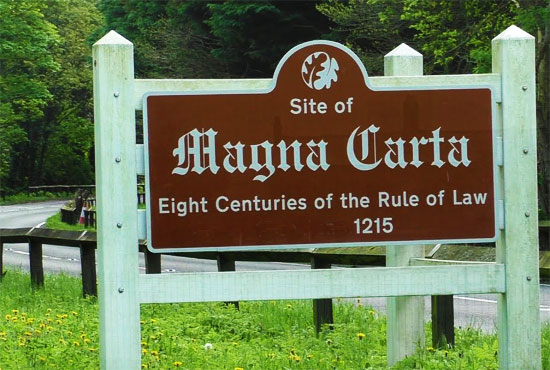BackGround 2

AHPRA’s activities include:
* Investigation of every complaint and being biased towards findings favouring the patient, (complainant). Too bad for you, especially if the patient is willing to lie or to do absolutely anything to get you into trouble or to teach you a lesson.
* Punishing an absolute river of doctors/GPs with education/ mentoring/ audits, which can be best described as “teaching your grandmother to suck eggs”. Perhaps what AHPRA suggests could be relevant to pre-graduating doctors. But to anybody with more than a few months experience dealing with people, it is obvious the educational experience is purely a punishment.
And a punishment in many ways. You waste your time doing meaningless activities which teach you nothing and achieve nothing. (It would be more useful to have you writing lines such as: “I will not be rude to patients”.) You spend time and money on a mentor to supervise your learning program. You may spend time and money on an auditor as well.
* If no finding can be made on the subject of the initial complaint, AHPRA will extend the investigation into the practitioner until something can be found. And if nothing can be found –they know that there is always something that can be found. Medical records can never really be good enough. (For deficient medical records- “Automatic conviction” – with no possibility of appeal. Even the medical defence organisations cast you adrift at this stage.)
AHPRA are also not averse to writing their own anonymous complaints.
* “Second” Punishments". I understand that doctors can often do quite wrong things. The legal and criminal system will decree a punishment for these individuals.
But, AHPRA’s role is not to impose a second punishment. It is to make sure that the practitioner is “safe” to work.
Doctors have trained for up to a decade to enter their profession. AHPRA’s restrictions/punishments on the ability of errant doctors to work, returns doctors to the general labour pool with skills of a common labourer. Second punishments- such as complex restrictions, often effectively deny the doctor the ability to work to earn a living. Working to earn a living is central to our entire culture and is a right.
It is an interesting experience in looking for new medical work to discover that every job specifies “and – no AHPRA restrictions”. Why? Because there are so many doctors at punished with restrictions and limited in their ability to work.

Favourite fields for AHPRA‘s investigations include:
* Medical Records: This area of investigation essentially gives a guaranteed conviction, likely to cost the practitioner $30,000 directly (for mentorship and auditing), and effectively of the order of $60-$70,000 if “everyone” were paid for the time involved and for the loss of patient contact involved.
* S8 breaches: A single act of not getting a patient reviewed within the prescribed interval and now within Queensland of not accessing QScript is a guaranteed conviction.
It is important to consider that medical practitioners are human beings. Many practitioners cope very poorly with the aggressive biased scrutiny of AHPRA and the demand for punishment. (Censored) .The only defence against AHPRA’s scrutiny is legal appeal. But this is doomed to failure. And the medical defence organisations will not support it.

Medical defence organisations such as AVANT refuse to finance a practitioner’s appeal of judgements. A single court appeal of even an “education condition” will cost a minimum of $20,000 in direct pure legal costs. AHPRA is unwilling to negotiate reduce any of its punishments. The process of appeal is financially and structurally biased against the doctor. Generally AHPRA says no and that is all there is to it.
AHPRA by changing the focus of an investigation, removes the need for justification of its acts. It can do what it wants as it wants to do it. The fact the patient complained of a delay in diagnosis of his/her sore toe and that no adverse finding can be made in regard to this, does not mean that AHPRA cannot investigate and convict you of something else of which you cannot defend yourself. The initial complaint becomes irrelevant to the process of investigation and censure that the doctor is undergoing.
I repeat – the initial complaint becomes irrelevant.

AHPRA can also make its own truths in the court process. How can a reputable body such as AHPRA possibly lie? I have heard some unique claims attributed to AHPRA in the courtroom. For example, “the AHPRA board believes that 10 minutes is not an adequate time for holistic medical care in a consultation”. They do not appear to have heard of general practice. In this industry approximately 80 to 90% of consultations are of the order of less than 10 minutes.
Finally, if you do take AHPRA to court and win your legal action, AHPRA or the HIC does not need to respect the judgement. They often at their own discretion, decide to go ahead and do whatever they wanted to do and to hell with the court system and the rest of the world. Another favourite in this circumstance is the retrograde legislation – which can guarantee that even if you win you lose.
(Generally this applies to decisions where money is involved – more often than not pathology and radiology based decisions).
One doctor reported to me that an AVANT medical advisor (helping him to submit his medical education report to AHPRA), told the doctor that AHPRA really liked her presentation reports. She said she was busy doing around 20 per week. AVANT is one of the major medical indemnity insurers in Australia. (Not the only one). This extrapolates to about 2000 doctors per year being pursued by AHPRA – approximately 3% of the medical workforce. This extrapolates over 10 years, to a one in three chance of being punished in this way by AHPRA.
I repeat – a 33% chance of earning this punishment over 10 years.
There is a good chance that eventually this will be you if you do nothing but wait for your time to come. So at this site we urge you – do something. You can do a lot without sticking your neck out. And you can do a lot more. And you can do it legally. And together we can all bring the Medical Monster to Bay.
Most doctors go to work every day with their sole thought of doing as much good as possible for the general public. So a guarantee that one in three doctors will face severe career ending “career reconsidering” punishment for failure to comply with “bullshit”, uncompliable directions; for failure to comply with unreasonable expectations of perfection – shows what a parody of justice the medical legal system for doctors has become.

Most doctors work most of their time in medicine directly. Medicine is an all-consuming profession. There is little time and energy remaining for political representation.
Consequently, the trend towards punishing doctors is increasing. Arbitrarily assigned punishments are the new norm, in the circumstances as they exist. I think we should consider ourselves lucky that AHPRA has not decided to “tar and feather” us.
So this site is about change.
The System of the medical regulation of doctors must change.
To bring about change – we need your support.
And there is no reason to make life hell for yourself in doing so.
You can feather your own nest and “get even” with the system without getting the least bit angry or taking the slightest risks – if that is how you wish to choose to help us. And we will be grateful to you for what you are doing.
The HIC / AHPRA system takes the benevolence of doctors for granted to such an extent that the medical industry would collapse if doctors were to consider their own self-interest as opposed to the interests of their patients.

The basic workhorse of medical industry is the consultation. In general practice, this means 10 minute time slots are allotted for all general medical work. The AHPRA board believes that 10 minutes is NOT an adequate time for holistic medical care in a consultation. However 80% to 90% of consultations are less than 10 minutes, 90% of consultations are bulked billed, and patients in the Australian environment have acquired an expectation that they should not need to pay for medical care, (so the time/ service/cost parameters of a consultation cannot be changed).
In this environment of extreme time pressure, medical records must needs be “tight”. A colleague of mine relates a patient in the US who cut the tip of the finger, requiring stitches for the flap of skin on the tip of the finger. They received excellent medical care in the US emergency clinic. 15 years ago it cost $1500 and produced a two page report detailing every action ad infinitum involved in the care of the patient. I think the requirement for an EEG and a CT scan to exclude brain tumours in a “routine accident” was excessive. However, had something been found – the actions would have been judged to be extremely justified.
Unfortunately, for every patient receiving care in the US system of high-quality care, in Australia around 10 patients receive “routine quality” care. In Australia, the medical notes relating to the above incident would probably not have covered more than 30 words and the bill for the consultation and operation would likely total less than about $100. To achieve such “bargain basement medical care”, corners must be cut. Pedantic notes are therefore one of the casualties of the Australian system.
My colleagues do not believe it necessary to document in extreme detail every action taken in a medical treatment. In creating this much verbiage, doctors (being human) fail to see the wood for the trees. Human beings function more intrinsically at a level whereby simple words convey a chain of meanings – the actions in every chain being understood not recorded in detail. (In short, human beings work better with summaries than with extreme detail – due to the need for detail to be processed (CPU brain cycles required instead of just pulling up an instant picture). So what purpose due slavishly detailed records serve? Answer: they are a good way to convict you for what you say and for what you may not.
Consequently, in Australia, medical records are always inadequate. It becomes easy for AHPRA to play the high card that a limited consultation time is not an adequate excuse for deficient medical records. A doctor is always required to take appropriate (extra) time to adequately record events consultation.
The key issue here of course is the word “adequate”. Adequate can be inferred to mean many different things to many different people. It can be interpreted in whatever way deemed useful to achieve whatever purpose is deemed useful – especially by an organisation such as AHPRA.
It comes down to “what is an adequate medical record?” You may as well answer the question – “how long is a piece of string?”

 No More. It Ends Here.
No More. It Ends Here.


